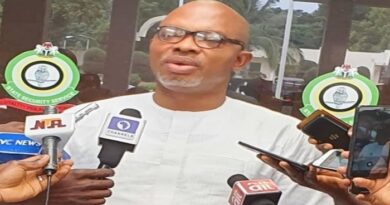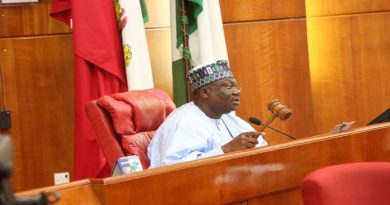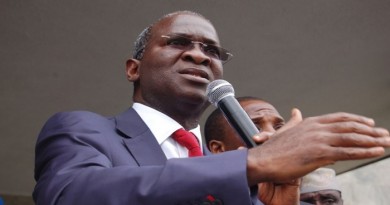World Bank disburses $14b COVID-19 cash to Nigeria, others
The World Bank Group on Thursday said it has disbursed $14 billion to Nigeria, and other developing countries to tackle C0VID-19 since the pandemic broke out.
World Bank Group President, David Malpass disclosed this yesterday at the end of WHO Ministerial Briefing on the Global COVID-19 Vaccination Strategy and Implementation held in Washington DC.
He disclosed that Russia and Ukraine crisis, sharp rise in inflation and poverty have diverted the world’s attention from COVID, and the demand for vaccines has slowed down.
Malpass said the public health response has adapted to the situation on the ground to focus vaccination efforts on the most vulnerable: the elderly, the immunocompromised, and the health workers.
“Even as the virus has continued to mutate, vaccines remain highly effective at reducing serious illness and death. They are an important tool for helping countries get on the path to recovery,” he said.
He said the World Bank is committed to working with partners to support client countries as they work to recover from the reversals in development.
“The World Bank has supported developing countries with COVID-19 emergency health and vaccine operations in more than 100 countries amounting to over $14 billion. Vaccine doses procured with bank financing through the COVAX cost-sharing mechanism have been fully delivered as agreed with client countries,” he said.
Malpass said the bank will continue to work closely with the COVID-19 Vaccine Delivery Partnership to support 34 countries needing the most urgent attention to achieve their coverage goals and promote vaccination for the most vulnerable.
“Our vaccine financing is helping countries purchase and distribute vaccines, expand storage and cold chains, develop tracking systems, train health workers, engage citizens and communities, and strengthen health systems,” he said.
He explained that in many developing countries, with the World Bank’s support, the governments procured doses of vaccines and pieces of syringes, which helped to vaccinate the populations.
In other countries, the World Bank supports health sector projects that helps governments respond to the COVID-19 pandemic and helps strengthen national systems for public health emergency preparedness.
The fund covers the costs of procuring and deploying COVID-19 vaccines, supports the acquisition of cold chain equipment to transport vaccines, and facilitates efforts for dedicated vaccination campaigns. Our second project in Uganda is to help recover the gains in essential health services.
The World Bank also ensures effective vaccine deployment through vaccination system strengthening; enhance clinical care and control of COVID-19 cases; reinforce communication strategies and community engagement to increase vaccine uptake; and further strengthen preparedness, detection, and response activities.
Malpass said that even as the world works to maintain focus on the COVID-19 response, the latest data from WHO and UNICEF show how severely the immunization coverage for other vaccines has dropped.
“The World Bank has been working closely with Gavi and governments of client countries to monitor countries’ financing of routine vaccines in more than 20 of the highest-risk countries. In 10 of these countries, governments chose to complement their domestic budgets by drawing on World Bank financing to pay for routine vaccines,” he said.
“We have also been working through World Bank-financed projects and through the Global Financing Facility platform to provide financing and prioritization of primary health care systems that will deliver immunization and other essential services.
Of our World Bank’s active operations, 177 specifically aim to strengthen immunization, including mainstreaming them into primary health care,” he added.
Malpass said there are ongoing efforts to provide additional financing to address critical gaps in pandemic prevention, preparedness, and response (PPR).
For instance, the World Bank’s Board of Directors approved on June 30 the establishment of a financial intermediary fund (FIF) that will bring additional, dedicated resources for PPR at national, regional, and global levels, with a focus on low- and middle-income countries.




